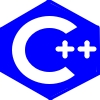C++: Difference between revisions
Robertvokac (talk | contribs) No edit summary |
Robertvokac (talk | contribs) No edit summary |
||
| Line 5: | Line 5: | ||
* "C with Classes" introduced [[object-oriented programming]] (OOP). | * "C with Classes" introduced [[object-oriented programming]] (OOP). | ||
* "C with Classes maintained the efficiency of C. | |||
== | == Advantages == | ||
high-performance | * powerful | ||
* high-performance | |||
* combines the efficiency of low-level programming with the flexibility of high-level abstractions. | |||
== Versions == | |||
C++ has undergone several revisions, with major updates in '''[[C++98]], [[C++11]], [[C++14]], [[C++17]], C++20, and C++23''', each bringing new features and improvements. | |||
== | |||
== Programming paradigms supported by C++ == | == Programming paradigms supported by C++ == | ||
| Line 37: | Line 35: | ||
== Common Applications of C++ == | == Common Applications of C++ == | ||
* '''Game Development:''' Used in game engines like Unreal Engine. | * '''Game Development:''' Used in game engines like Unreal Engine. | ||
* '''Operating Systems:''' Many operating systems, including parts of Windows and Linux, are built with C++. | * '''Operating Systems:''' Many operating systems, including parts of Windows and Linux, are built with C++. | ||
| Line 49: | Line 45: | ||
== Conclusion == | == Conclusion == | ||
C++ remains one of the most powerful and versatile programming languages. Whether you're developing high-performance applications, working on system-level programming, or building scalable software, C++ provides the tools and flexibility needed for success | C++ remains one of the most powerful and versatile programming languages. | ||
Whether you're developing high-performance applications, working on system-level programming, or building scalable software, C++ provides the tools and flexibility needed for success. | |||
Revision as of 20:43, 25 March 2025
C++ is programming language created in 1985 by Bjarne Stroustrup.
The C++ precedessor is "C with Classes", which is an extension of the C programming language create by Bjarne Stroustup in 1979.
- "C with Classes" introduced object-oriented programming (OOP).
- "C with Classes maintained the efficiency of C.
Advantages
- powerful
- high-performance
- combines the efficiency of low-level programming with the flexibility of high-level abstractions.
Versions
C++ has undergone several revisions, with major updates in C++98, C++11, C++14, C++17, C++20, and C++23, each bringing new features and improvements.
Programming paradigms supported by C++
- Procedural
- Object-oriented
- Generic
- Functional
Key Features of C++
C++ offers a wide range of features that make it suitable for various applications:
- Object-Oriented Programming (OOP): Supports classes, inheritance, polymorphism, and encapsulation.
- Templates & Generic Programming: Enables code reusability through function and class templates.
- Memory Management: Provides both automatic and manual memory control via
new,delete, and smart pointers. - Standard Template Library (STL): Includes data structures, algorithms, and iterators for efficient programming.
- Multithreading Support: Offers thread management features for concurrent programming.
- Low-Level Manipulation: Allows direct interaction with hardware, making it suitable for system-level programming.
- High Performance: Optimized for speed and resource management, making it ideal for performance-critical applications.
Common Applications of C++
- Game Development: Used in game engines like Unreal Engine.
- Operating Systems: Many operating systems, including parts of Windows and Linux, are built with C++.
- Embedded Systems: Used in automotive software, IoT devices, and real-time systems.
- Finance & Trading Systems: High-frequency trading platforms rely on C++ for low-latency execution.
- Scientific Computing: Used in applications like MATLAB, CERN software, and physics simulations.
Modern C++ and Future Trends
Modern C++ focuses on improving developer productivity while maintaining backward compatibility. Recent updates have introduced concepts, coroutines, modules, and ranges to simplify development. The future of C++ is expected to bring better safety, concurrency, and performance enhancements, keeping it relevant for decades to come.
Conclusion
C++ remains one of the most powerful and versatile programming languages.
Whether you're developing high-performance applications, working on system-level programming, or building scalable software, C++ provides the tools and flexibility needed for success.
